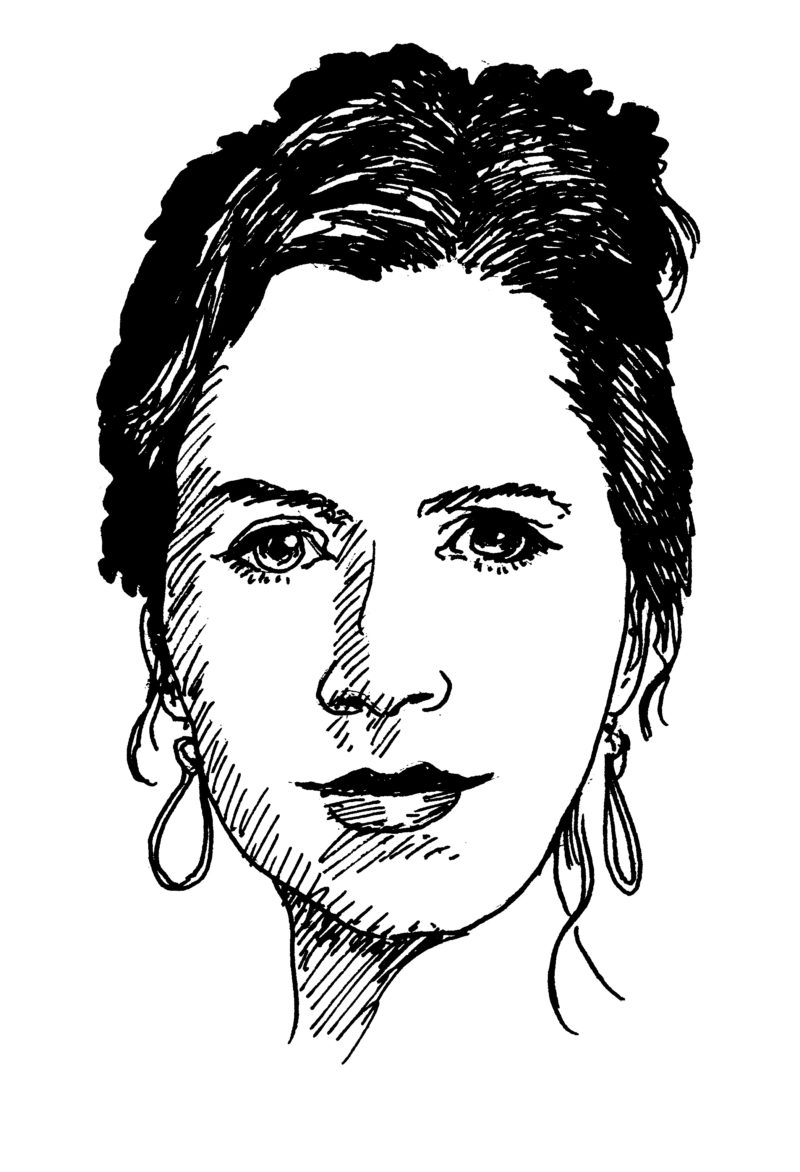For Kate Soper, the most profound way to read a work of literature is by performing it as music. As a child, she liked to pull a book of poems off the shelf—Robert Frost or Edna St. Vincent Millay—and set it on the music stand of her family’s piano. Then she’d sit and play through the poems, turning the pages as though they were sheet music, improvising compositions for piano and voice on the spot. As she grew older, she studied composition at Rice University, going through a Tori (and Joni)–inspired singer-songwriter phase, while at the same time discovering twentieth-century composers like Iannis Xenakis and Luciano Berio. Today, at thirty-six, she continues to put literature on the music stand and to juxtapose pop and avant-garde forms. In an astonishing series of increasingly theatrical works, she explores the intersections of and tensions between speech and song, music and meaning. In 2017, she presented an evening-length work she composed, called Ipsa Dixit, with Wet Ink, the chamber ensemble she performs with. A finalist for the 2017 Pulitzer Prize in music, Ipsa Dixit is an improbably funny and moving a piece of experimental opera in which Soper set writings from Lydia Davis, Aristotle, Wittgenstein, Freud, Jenny Holzer, and others to music. Soper alternately sings and speaks, declaiming lines “with histrionic conviction” (as she writes in the stage directions), punctuating her delivery with a handheld bell or a sudden glissando from the ensemble. Then, on a proverbial dime, she bursts from speech into breathtakingly sung figures in styles that veer from the operatic to the atonal. As she sings, the virtuosic (and totally deadpan) Wet Ink ensemble trade instruments, perform Socratic dialogues, and stoically play on as Soper literally deconstructs the instruments in their hands. In describing this work, one finds oneself scrambling to qualify these heady characterizations with an assurance that it’s also funny and exhilarating. And moving! Indeed, one of the most impressive elements of Soper’s work is the way she manages to make such serious and rigorously experimental material come across as accessible, witty, and warm. I spoke with Soper in her office in a ninety-four-year-old building overlooking a river and sprawling athletic fields, on the campus of Smith College, in western New England, where she teaches. Her office door is several times thicker than a normal door, and turning its handle felt like opening an airlock or a cargo bay. When I commented on the almost absurd sturdiness of her entryway, she pointed out that it was designed to shut out noise and, more important, shut it in: “We get loud in here.” Her office is the size of a distinguished and elderly dining room, full of old wood and...
You have reached your article limit
Sign up for a digital subscription and continue reading all new issues, plus our entire archives, for just $1.50/month.
Already a subscriber? Sign in





